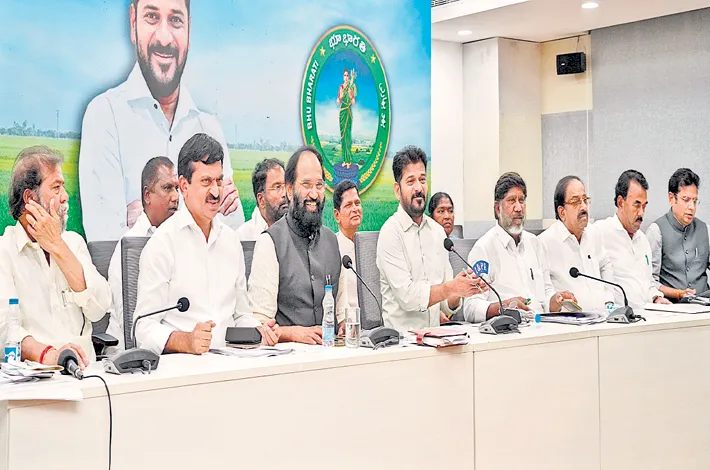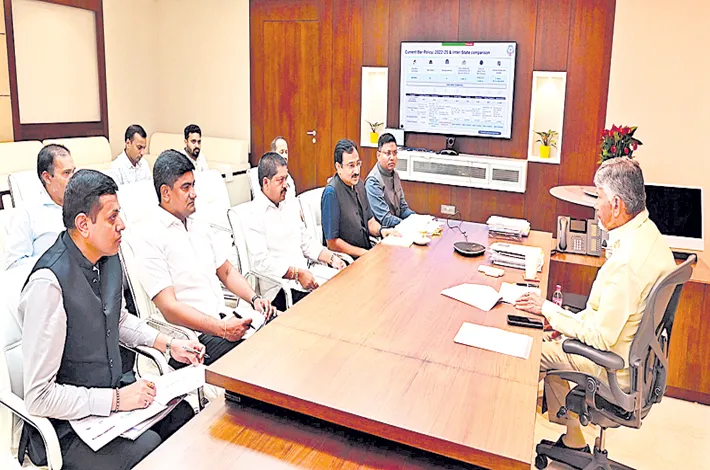The Maya Brigade and the Silent Victory
05-08-2025 12:00:00 AM

In the heart of Rayalaseema, where the sun painted the red soil gold and the wind whispered through the tamarind trees, lay the small town of Kadapuram. It was a place of simple joys—children playing under banyan trees, vendors selling spicy mirchi bajjis, and temple bells ringing in the distance. But lately, Kadapuram had a problem. Noise. Loud, relentless noise. Horns blared from trucks on the main road, speakers blasted music at all hours, and construction drills roared like angry beasts. The townsfolk were tired, the birds had stopped singing, and even the wise old peepal tree seemed to droop in despair.
In Kadapuram lived a group of five spirited children who called themselves the Maya Brigade. There was ten-year-old Anu, the fearless leader with a knack for solving problems; Ravi, the clever planner who always carried a notebook; Lakshmi, the artist who saw beauty in everything; Suresh, the tech whiz who could fix anything; and little Priya, whose sharp ears caught every sound. The Maya Brigade loved their town, but the noise was stealing its peace. They decided it was time to act.
One sunny afternoon, the Brigade gathered under their favorite mango tree. Anu clapped her hands. “We can’t let Kadapuram become a noise jungle! The elders are too busy, so it’s up to us. Any ideas?”
Ravi flipped open his notebook. “First, we need to know where the noise is coming from. Let’s map it out.” Lakshmi suggested, “We can make posters to show people how noise hurts everyone.” Suresh grinned, “I can record the loudest spots with my phone to prove it’s a problem.” Priya, covering her ears as a truck honked nearby, added, “We need to tell the officials. They’ll listen if we show them proof!”
The Maya Brigade sprang into action. For a week, they roamed Kadapuram, their sandals kicking up red dust. Ravi marked noisy spots on a map: the main road where trucks honked endlessly, the market where shopkeepers played loud music to attract customers, and the construction site near the school that never stopped drilling. Suresh recorded the sounds—honks, shouts, and screeches—until his phone was full of evidence. Lakshmi drew colorful posters showing birds fleeing from noise and children unable to study. Her favorite had a crying sparrow saying, “Give me back my song!”
Priya, with her sharp ears, noticed something odd. “The loudest music comes from the new tea shop every night. It’s keeping my grandma awake!” Anu nodded. “That’s our first target. Let’s talk to the shop owner.”
The Brigade marched to the tea shop, where Mr. Rao was blasting film songs from a giant speaker. Anu politely explained, “Uncle, your music is so loud it’s hurting the town. Can you turn it down?” Mr. Rao laughed, “Loud music brings customers! It’s just how business works.” Disappointed but not defeated, the Brigade decided they needed bigger help.
Ravi suggested, “Let’s go to the panchayat office. They can make rules.” The children gathered their evidence—Ravi’s map, Suresh’s recordings, and Lakshmi’s posters—and headed to the office. The panchayat leader, Mrs. Venkata, was busy, but Priya’s small voice caught her attention. “Aunty, the noise is making my grandma sick. Please listen to us.”
Mrs. Venkata looked at the children’s serious faces and agreed to hear them out. Ravi showed the map, pointing out the noisiest spots. Suresh played the recordings, and the harsh sounds filled the room. Lakshmi held up her posters, explaining how noise was chasing away birds and making it hard for children to study. Mrs. Venkata was impressed. “You’ve done your homework, Maya Brigade. But we need the police to enforce any rules. Let’s go to the station together.”
At the police station, Sub-Inspector Reddy was skeptical. “Kids, noise is part of life here. What can we do?” Anu stepped forward. “Sir, it’s not just noise. It’s hurting our town. The hospital says patients can’t rest, and our teachers say we can’t focus in class. Please help us.” The Brigade’s evidence was hard to ignore. The recordings were deafening, and Lakshmi’s posters tugged at everyone’s heartstrings. Inspector Reddy nodded. “Alright, let’s try something. We’ll start with warnings and fines for excessive noise.”
The police and panchayat worked together, guided by the Maya Brigade’s map. They put up signs in Kadapuram: “Keep Noise Low, Let Kadapuram Glow!” They visited the tea shop, the market, and the construction site, warning owners to lower their volumes or face fines. Mr. Rao grumbled but turned down his speaker. The construction company agreed to work during quieter hours. The police even patrolled the main road, stopping trucks from honking unnecessarily.
Slowly, Kadapuram changed. The birds returned, chirping happily. Children could hear their teachers again. Grandma Priya slept peacefully at night. The Maya Brigade didn’t stop there. They held a “Silent Day” festival, where the town turned off loudspeakers and honked less. Lakshmi painted a mural of a peaceful Kadapuram, with children and animals smiling under a quiet sky. The townsfolk loved it, and even Mr. Rao admitted, “Business is still good, and I like the calm.”
One evening, under the mango tree, the Maya Brigade celebrated. Anu raised a glass of sugarcane juice. “To the Maya Brigade, for bringing back our town’s peace!” Ravi added, “And to teamwork!” Lakshmi smiled, “And to quiet skies!” Suresh and Priya cheered, “To Kadapuram!”
The old peepal tree seemed to stand taller, its leaves rustling softly. The Maya Brigade had shown that even the smallest voices could make a big difference. In Rayalaseema’s heart, Kadapuram was singing again—not with noise, but with the sweet sounds of peace.








